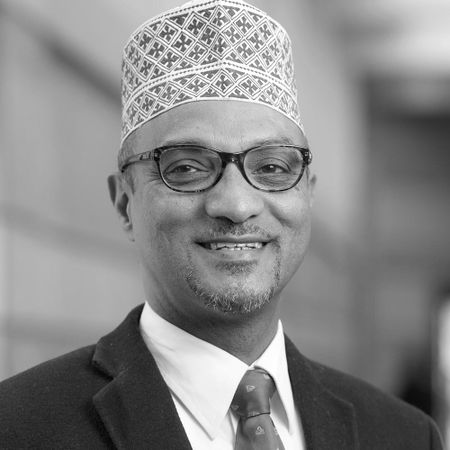In early September 2025, Acting Minister of Police, Professor Firoz Cachalia, embarked on a week-long visit to Cape Town. He entered the Cape Flats not with ready-made solutions, but with humility, listening to civic groups, religious leaders and residents whose lives are scarred by gang violence.
For communities long spoken at rather than spoken with, this posture of listening marks a refreshing and hopeful departure, one deserving of both commendation and cautious optimism.
A fresh spirit of engagement
Instead of delivering top-down edicts from Pretoria, Professor Cachalia came to discern, to ask and to reflect. His engagement with religious leaders, a community’s moral compass, was especially significant. By drawing on the moral authority of faith leaders, Cachalia acknowledged what many officials overlook: that policing strategies must be grounded in trust, partnership and shared values.
His approach reflects an awareness that restoring safety requires more than force; it requires rebuilding the fragile bonds between state and community.
The challenge within the SAPS
Yet this promising approach may falter against entrenched habits within the Western Cape police. Too often, communities have faced not empathy but indifference, arrogance and even contempt. Unless Cachalia ensures that his officers adopt his ethos of listening, partnership and accountability, his vision and approach risks being undermined from within, or even sabotaged by those charged with carrying it out. He must remain vigilant against this danger.
The problem is embodied in Western Cape Police Commissioner Lieutenant-General Thembisile Patekile’s recent assertion that “things are under control” on the Cape Flats.
To residents who live in daily fear, such remarks are insulting. Many community leaders now openly question whether he has the political will to confront gangsterism, with some even demanding his resignation.
This discontent is compounded by the commissioner’s failure to respond to the memorandum handed to him personally by the Muslim Judicial Council (MJC) during their meeting in July 2025. In that memorandum, council president Sheikh Riad Fataar warned that “the Cape Flats and the broader Western Cape are bleeding. Our communities are caught in violent syndicates, where fear shadows the dreams of our children.”
The memorandum called for a “paradigm shift”, and intelligence-driven strategies to dismantle gang leadership, rooted in constitutional oversight and community-informed action.
Patekile gave an undertaking to respond to the council’s memorandum within 14 days. It has now been almost two months, and he has not formally responded. This silence only deepens the perception that he lacks not just political will, but moral seriousness in confronting gangsterism head on.
A long history of suffering
We must never lose sight of history. The Cape Flats did not develop by chance, or simply emerge. These communities were created by apartheid’s coercive removals under the Group Areas Act, which tore families from their homes and dumped them in overcrowded, under-resourced settlements on the city’s sandy margins.
For more than 50 years, generations have lived with the legacy: poverty, trauma and the scourge of gangsterism. Any meaningful policing strategy must confront these structural injustices, and not merely the symptoms.
Still early days
For now, Cachalia deserves recognition for beginning his mission with humility and openness. But it is still early days. A week of listening cannot on its own restore confidence. Words must become action, and gestures must translate into lasting change.
The people of the Cape Flats, who have suffered for generations, will believe in his vision only if they see safety restored, dignity revived and justice delivered.
The way forward
If Cachalia sustains this community-first approach with vigilance, ensures that the SA Police Service leadership embodies his ethos, and addresses the root causes of violence, he may yet chart a new course.
For now, he has opened the door. It is up to him, and to all partners from the SAPS to civic and religious leaders, to walk through it with courage, consistency and commitment. DM




